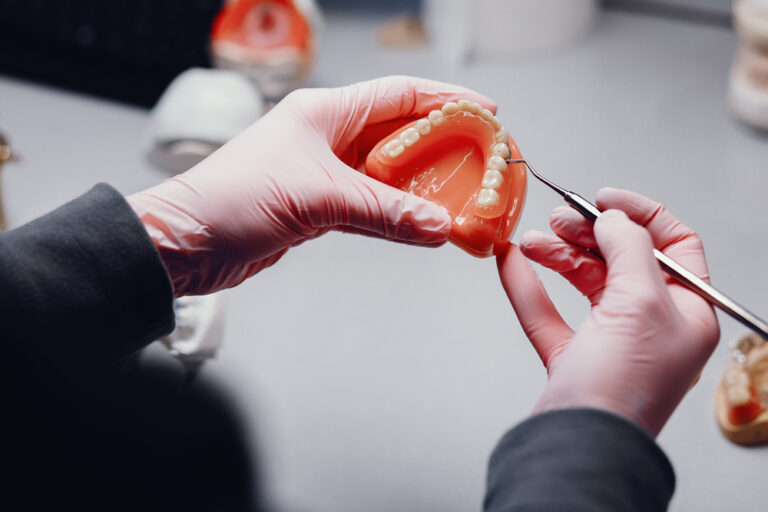Periodontitis, a severe form of gum disease, affects millions of people worldwide and can result in serious dental problems if not treated promptly and effectively. Characterized by inflammation and infection of the gums, periodontitis can lead to gum recession, tooth loss, and even damage to the underlying bone structure. For individuals living in Northglenn, Colorado, accessing advanced dental care services to manage and treat periodontitis effectively is crucial for maintaining optimal oral health. At Colorado Gum Care Northglenn, CO, we are committed to providing top-quality, state-of-the-art dental treatment options to help Northglenn residents combat gum disease and maintain healthy teeth and gums.
In this blog post, we’ll discuss the importance of early detection, preventive measures, and advanced treatment options available for managing periodontitis in Northglenn. We’ll also share some helpful tips on proper oral hygiene and dental care to assist you in effectively preventing gum disease. By understanding the risks and consequences of periodontitis and learning ways to address it, Northglenn residents can enjoy better oral health and a brighter, healthier smile.
To help residents of Northglenn make informed decisions about their oral health and achieve optimal gum care, the team at Colorado Gum Care Northglenn, CO, offers comprehensive dental consultations and services tailored to address gum disease at every stage. Keep reading to learn more about the effective periodontitis treatments available in Northglenn, as well as the preventive measures you can take to enjoy better oral health and a radiant smile.
With that said, let’s delve into today’s topic.
Understanding Periodontitis: Causes, Symptoms, and Risks
Periodontitis is a progressive gum disease that often begins as a result of untreated gingivitis, which causes inflammation and reddening of the gums. The main cause of periodontitis is the buildup of dental plaque on teeth, which hardens into tartar and triggers an inflammatory response in the gums. Other factors that can increase the risk of developing periodontitis include genetics, poor oral hygiene, smoking, diabetes, and medications that cause dry mouth.
Common symptoms of periodontitis include:
- Red, swollen, or bleeding gums
- Persistent bad breath or a foul taste in the mouth
- Gum recession, making teeth appear longer
- Pain when chewing
- Loose teeth or tooth loss
Early detection and diagnosis are vital for effectively managing periodontitis and preventing further damage to the gums, teeth, and supporting bone structure.
Non-Surgical Periodontitis Treatments
For milder cases of periodontitis or early-stage gum disease, non-surgical treatments may be sufficient to manage the condition and prevent it from progressing. Some of the non-surgical treatment options include:
- Scaling and Root Planing: This deep cleaning procedure involves removing plaque and tartar from above and below the gum line. During scaling, dental instruments are used to scrape away plaque and tartar, while root planing smooths rough surfaces on the roots of the teeth to help the gums reattach and heal.
- Antimicrobial Mouthwash: Using an antimicrobial mouthwash can help control bacteria levels in the mouth, reducing the risk of infection and further gum damage.
- Oral Hygiene Education: Proper oral care techniques and routine dental check-ups are crucial for preventing periodontitis and maintaining gum health. Dentists at Colorado Gum Care Northglenn, CO, provide personalized oral hygiene advice to help patients develop a consistent and effective at-home care regimen.
- Medications: Antibiotics or antiseptic medications might be prescribed or placed directly into the gum pocket to control the infection and promote healing.
Surgical Periodontitis Treatments
When non-surgical treatments are not sufficient, or periodontitis has progressed to an advanced stage, surgical treatments may be necessary to restore gum health and function. Some of the surgical treatment options include:
- Gum Grafting: In cases where gum recession is severe, gum grafting can help restore tissue loss by taking healthy tissue from another part of the mouth and attaching it to the gum area where the recession has occurred.
- Crown Lengthening: This surgical procedure involves removing excess gum tissue and reshaping the bone to expose more of the tooth for further restorative dental work.
- Dental Implants: When tooth loss occurs due to advanced periodontitis, dental implants can be an option for replacing missing teeth and maintaining proper alignment and function.
- Bone Grafting: In severe cases where the supporting jawbone has been damaged, bone grafting procedures can help replace the lost bone structure and provide a stable foundation for dental implants or other restorative treatments.
Preventing Periodontitis: Tips for Optimal Gum Care
Prevention is always better than cure, so adopting a proper oral hygiene routine and leading a healthy lifestyle can go a long way in staving off gum disease and periodontitis. Here are some tips for maintaining optimal gum health:
- Brush your teeth at least twice a day, using a soft-bristle toothbrush and fluoride toothpaste.
- Brush your teeth at least twice a day, using a soft-bristle toothbrush and fluoride toothpaste.
- Use an antimicrobial mouthwash to help kill bacteria and reduce plaque buildup.
- Schedule regular dental check-ups and cleanings to detect early signs of gum disease and address any issues promptly.
- Avoid smoking and excessive alcohol consumption, as these habits can increase your risk of developing periodontitis and other oral health problems.
Conclusion
It is crucial for everyone, especially residents of Northglenn, to understand the causes, risks, and consequences of periodontitis, as well as the preventive and treatment options available. At Colorado Gum Care Northglenn, CO, we are dedicated to providing the highest quality dental care and helping our Northglenn patients achieve optimal oral health. Whether you have mild gum inflammation or advanced periodontitis, our experienced dental professionals can offer you tailored treatment plans and guidance to combat gum disease and maintain a healthy, radiant smile. Schedule an appointment today to discuss your gum health and take the first step towards better oral health.







